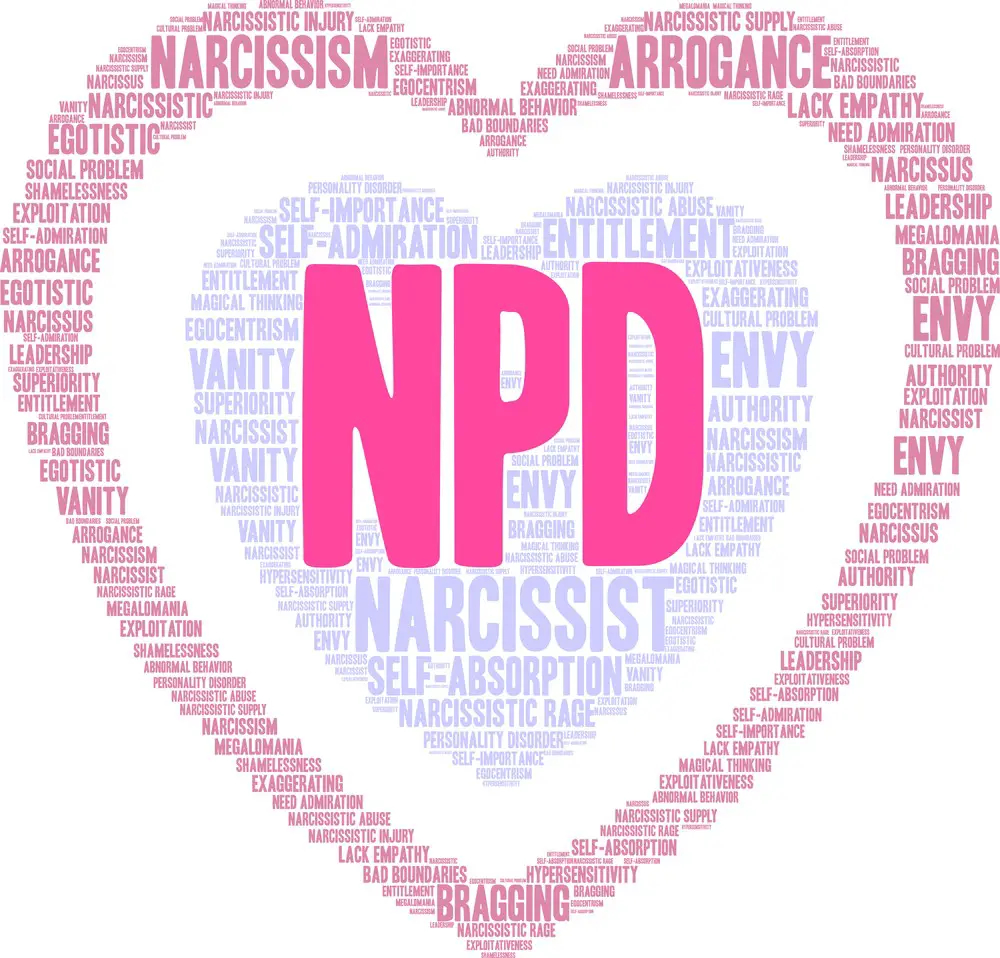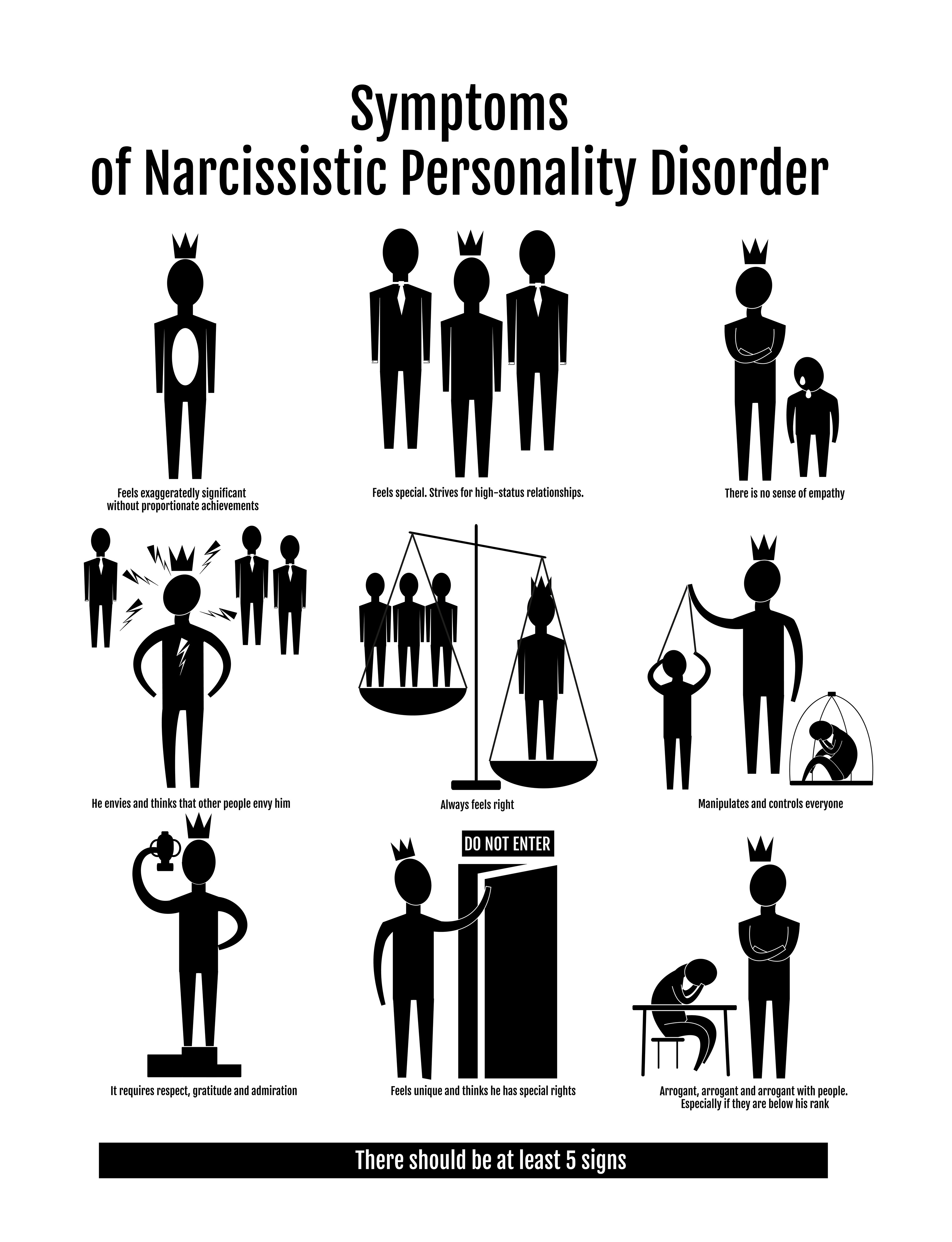As a BetterHelp affiliate, we receive compensation from BetterHelp if you purchase products or services through the links provided
Navigating a conversation with a narcissist can feel like walking through a field of landmines. It is challenging and often leaves one feeling emotionally drained. Understanding the mindset of a narcissist and the strategies required to communicate with them effectively is crucial in building and maintaining healthy relationships.
Narcissistic Personality Disorder (NPD) is characterized by an inflated sense of self-importance, a deep need for admiration, and a lack of empathy for others. People with NPD often become self-absorbed and dismissive of other people’s feelings, making it difficult to engage in meaningful conversations. By establishing effective communication strategies, however, it becomes possible to navigate these challenging interactions while maintaining emotional well-being, recognizing manipulative tactics, and fostering relationships.
Key Takeaways
- Understand the characteristics of Narcissistic Personality Disorder to communicate effectively.
- Develop strategies tailored to different relationship types and settings
- Prioritize emotional well-being while recognizing and overcoming manipulative behaviors

Understanding Narcissistic Personality Disorder
Characteristics of Narcissists
Narcissistic Personality Disorder (NPD) is a mental health condition characterized by a persistent pattern of self-centeredness, grandiosity, and a need for admiration. Narcissists often display an inflated sense of self-importance, believing they are superior to others. They may exhibit traits such as:
- Arrogance: A belief that they are special and deserve preferential treatment
- Lack of empathy: Difficulty understanding and sharing the emotions of others
- Manipulative behavior: Using others for personal gain
- Envy: Resentment of others’ success or achievements
- Entitlement: Expecting special privileges without merit
Narcissistic Abuse and Manipulation
Narcissists often abuse and manipulate, which can be emotional, psychological, or even physical. Some common forms of narcissistic manipulation include:
- Gaslighting: Making the victim question their reality by denying or distorting facts
- Triangulation: Creating conflict between others to gain control or maintain power
- Punishing non-compliance: Withholding affection, attention, or support as a form of punishment
- Love-bombing: Intense displays of affection as a means to control the victim’s emotions
Individuals in relationships with narcissists need to recognize these behaviors and seek support from friends, family, or professional help when necessary. Understanding Narcissistic Personality Disorder can help improve communication with narcissists and protect oneself from potential harm.

Establishing Effective Communication Strategies
Setting Boundaries and Expectations
Establishing clear boundaries and expectations is essential when communicating with a narcissist. They help to maintain a healthy relationship and prevent manipulation. It is crucial to stand firm on your boundaries and not allow the narcissist to cross them. You may use phrases like “I feel disrespected when you speak to me that way” or “I will not tolerate being talked down to.”
Developing realistic expectations also contributes to effective communication. Understand that a narcissist’s behavior may not change overnight, but setting expectations will assist you in managing their conduct and staying true to yourself.
Dealing with Anger and Rage
Narcissists often rage when feeling threatened or perceiving their ego as being challenged. It is critical to remain calm and composed to navigate these situations. Refrain from becoming defensive or reacting aggressively, which may escalate the situation.
It may be helpful to use assertive yet respectful language when addressing the narcissist’s feelings and needs, such as “I understand your frustration, but it is not acceptable for you to raise your voice at me.” Ensure to maintain a neutral tone to prevent further outbursts.
Managing Criticism and Praise
Narcissists tend to expect praise and may criticize others for asserting their superiority. Learning how to manage this aspect of their behavior is vital for effective communication. When a narcissist praises you excessively, acknowledge their compliment while remaining grounded in reality. Conversely, when faced with criticism, avoid taking it personally and resort to assertiveness to express your disagreement without being confrontational.
Strategies for interacting with a narcissist efficiently include:
- Establishing clear boundaries and expectations
- Remaining calm and composed during conflicts
- Navigating criticism and praise with assertiveness and groundedness
By implementing these strategies, communication with a narcissist can become more manageable and constructive, ultimately contributing to a healthier relationship dynamic.
Interacting with Different Relationships
Communicating with a Narcissistic Spouse
When communication is essential between partners, navigating conversations with a narcissistic spouse can be challenging. Always maintain a calm demeanor and use assertive, clear language. Avoid getting defensive and try to focus on shared goals. In delicate situations, use “I” statements to express your feelings without placing blame on them.
Handling a Narcissistic Boss
Dealing with a narcissistic boss may require diplomacy and flexibility. Start by understanding their values, goals, and priorities. Acknowledge their achievements and validate their feelings, but still stand firm on your own boundaries. When giving feedback or presenting new ideas, frame them as suggestions that align with their objectives for the best outcome.
Navigating Conversation with a Narcissistic Co-worker
To handle conversations with narcissistic co-workers, keep interactions professional and avoid personal topics that may provoke their ego. Practice active listening, but set limits on excessive self-promotion. When working as a team, maintain your own contributions and productivity, and make sure to set your boundaries to prevent being manipulated or exploited. Remember the importance of treating them with respect while maintaining a safe distance in the relationship.

Maintaining Emotional Well-Being
Self-Care and Support Systems
Practicing self-care is essential when dealing with a narcissist. Individuals should prioritize their emotional and mental health by engaging in activities that bring them joy and reduce stress. They should also nurture a strong support system comprising friends, family, or even online groups that provide understanding and encouragement.
Recognizing and Addressing Trauma
Encounters with narcissistic individuals can often be traumatic. Recognizing signs of trauma and addressing them is crucial to emotional well-being. Some common signs of trauma include flashbacks, heightened emotional reactions, and difficulty concentrating. Individuals should be patient with themselves and seek healthy coping mechanisms, such as deep breathing and meditation.
Seeking Professional Help
When dealing with a narcissist, it’s essential to have an advocate to support and validate one’s feelings. Professional help, like therapy, can provide a safe space for individuals to explore their emotions, build self-esteem, and develop strategies to maintain focus and empathy. A therapist can also help identify potential harmful patterns and guide the person toward healthier relationships. Choosing the right mental health professional is important for effective healing and growth.
Recognizing and Overcoming Manipulative Tactics
Flattery and Love Bombing
Narcissists often use flattery and love bombing to disarm their victims. He or she may shower the individual with compliments, attention, and affection, making the person feel special and worthy. To overcome this tactic, one should remain alert and cautiously evaluate the intentions behind the flattery. Maintaining a balance between receiving affirmations and blindly believing them is important.
Aggression and Control
A narcissist may employ aggression and control to dominate and manipulate others. They may become angry, lash out or sulk when they do not receive what they want, using these emotional reactions to compel compliance. This can be countered by recognizing the pattern and setting firm boundaries. It is crucial to assert one’s rights and stand by the decision, even if this upsets the narcissist.
Sense of Entitlement and Arrogance
Narcissists often display an overwhelming sense of entitlement and arrogance, believing they are inherently superior and deserving of special treatment. They may disregard the feelings of others or belittle their accomplishments. To deal with this, one should establish personal boundaries and maintain self-respect by not allowing the narcissist’s actions to affect one’s sense of worth. It can also help to remember that the narcissist’s arrogance is a protective covering for their insecurities.
Tips and Strategies
Communication with a narcissist can be difficult, but understanding their behavior and utilizing effective strategies makes it possible to navigate a successful relationship. Here are some tips for communicating effectively:
– Establish clear boundaries and expectations.
– Remain calm and composed during conflicts.
– Utilize “I” statements to express feelings without placing blame.
– Acknowledge achievements while retaining your boundaries.
– Use assertive, clear language when giving feedback or presenting new ideas.
– Maintain professionalism in conversations and avoid personal topics.
– Remember the importance of respecting them while maintaining distance in the relationship.
– Engage in self-care activities that bring joy and reduce stress.
– Seek professional help exploring emotions, building self-esteem, and developing strategies for healthier relationships.
– Recognize manipulative tactics and set limits on excessive self-promotion.
– Establish personal boundaries and maintain self-respect in the face of arrogance or belittling.
By utilizing these tips and strategies when communicating with a narcissist, individuals can learn how to communicate effectively while protecting their emotional well-being. With greater understanding, narcissists can become more manageable and constructive, ultimately contributing to a healthier relationship dynamic.
Frequently Asked Questions
How can I set boundaries effectively with a narcissist?
Establish hard limits on what behaviors are acceptable and unacceptable. Make these rules clear and consistent, but avoid engaging in lengthy explanations, as narcissists can use this as an opportunity to manipulate and argue. Maintain your boundaries firmly and refuse to compromise them.
What is the best way to deal with the silent treatment from a narcissist?
When a narcissist employs the silent treatment tactic, it is essential to not indulge in their behavior or beg for communication. Remain calm and composed, and focus on positive interactions with individuals who respect your boundaries. Recognize that the silent treatment is a form of control, and resist feeding the narcissist’s ego.
How can I handle emotional blackmail from a narcissist?
To handle emotional blackmail by a narcissist, it’s important not to engage in their manipulations or allow guilt to control your actions. Realize that your feelings and needs matter too and that their demands are often unjustified. Seek external support from friends, family, or a professional when necessary to maintain your emotional well-being.
How can I avoid being “love bombed” by a narcissist?
Be aware of love bombing, a narcissist’s tactic of overwhelming affection to manipulate. Maintain your self-worth and sense of identity, and critically evaluate the sincerity of the affection shown. Remember that genuine love doesn’t depend on condition or control, and trust your instincts when determining if the emotions are genuine or fabricated.
How can I react to triangulation by a narcissist?
To protect yourself from this strategy, avoid getting wrapped up in these triangulations and focus on direct communication with the person involved. Refuse to engage in gossip or triangulating conversations; redirect conversations back to the initial issue, and focus on finding solutions.
How can I address victim playing by a narcissist?
When faced with this behavior, validate their emotions without feeding into the drama. Use healthy skepticism to evaluate situations and consider the wider context of what might trigger the narcissist to play the victim. Maintain your boundaries and refrain from comforting them excessively. Focus on solutions and personal responsibility.
- Stress Management: What is the Relationship Between Stress and Addiction? - June 28, 2024
- Exploring Techniques to Maintain a Healthy Lifestyle without Drugs - May 28, 2024
- How Acupuncture Helps Treat Chronic Fatigue Syndrome - May 28, 2024
This site contains affiliate links to products. We will receive a commission for purchases made through these links.




